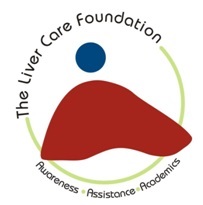It is unfortunate that despite the enactment of the Act over 18 years ago, living donors continue to thrive as the integral component for organ transplantation in India. Cadaveric donations have just not picked up enough to put our country on the map as proud supporters of this concept. Reasons have been cited as many: Lack of awareness, Lack of systems and frameworks within the hospital, myths and misconceptions; religion etc are common justifications.
Human organ donation, was legalised in India in 1994. The endeavour was not about just saving precious lives, but about creating goodwill in society. The brain dead person who is the cadaveric donor can from multi-organ retrieval save at least 12 lives. These include kidneys, lungs, heart, heart valves, blood vessels, middle ear, liver, pancreas, skin, eyes and bone marrow……..But all this is possible if the relatives of that brain dead patient will consider organ donation seriously and make it happen!
Where does a brain death donor usually come from?
There are many causes, but the commonest one is as a result of road accident deaths. India has about 1,40,000 road traffic accidents annually of which 67 percent could be potential brain dead victims from severe head injuries. Recent modifications in the Act have made it mandatory for hospitals to recruit transplant coordinators in the pivotal role of any transplant program, which is recognized as a task with a challenge that contributes to the success and strength of the program.
The Institute of Liver and Biliary Sciences has been mandated by Government of Delhi to launch the official, accredited training program for Transplant coordinators.
The DTI-TPM Foundation has been recognized worldwide as the best in offering deceased donor transplant coordination training with credit of having trained almost 4000 transplant coordinators in 87 countries worldwide.
We hope that following this certification, participants will be able to apply a newly acquired skill set at their place of work for better contribution to work practices within their hospitals. Please click here for the program details and fees.
This is just the beginning to the world of transplants. Like they say, just the tip of the iceberg! There is so much more to do in terms of developing state and country level involvement with the government on synchronizing hospital based waiting lists and allocation of organs to ensure transparency in distribution.
Top 10 Myths about donation
Myth - I heard about the horrific story that kidneys were sold on the black market
Fact – It is illegal to buy or sell organs in India. Matching Donors and Recipients is a highly complex procedure that requires trained Medical Professionals and thorough testing
Myth – Rich and Famous People get moved to the top of the transplant list, while regular people have to wait longer for a transplant
Fact - Things like severity of illness, time spent waiting, blood type and match potential are the factors that determine a person’s place on the waiting list. Race, Income or social status is never taken into account during the allocation process
Myth – If I am in an accident and the hospital knows I am an organ donor, the doctor’s wont save my life
Fact – The primary duty of a healthcare professional is to save the life of a patient who enters their hospital. Donation only occurs after lifesaving efforts have been exhausted and death is legally declared
Myth – My religion does not approve of donation
Fact - Most major religions support organ donation. Some leave it to personal choice while others view it as an act of charity and goodwill
Myth – My family will be burdened by the costs of my organ donation
Fact – Costs associated with recovering and processing organs and tissue for transplant are never passed on to the donor family. The family will be responsible for medical expenses incurred before the death is declared and for expenses involving funeral arrangements
Myth – If I donate, I will be born with no organs in my next life.
Fact – Logically a human body cannot function without any of its organs which are there for a purpose that contribute to existence
Myth – I have a history of medical illness. My organs aren’t good enough to donate.
Fact – You are not too old or unhealthy to register to be a donor. Don’t rule yourself out- designate your decision to be an organ donor by signing up on the donor state organ registry at www.dorso.org and leave it to the medical professionals to decide at the time of your death to determine if your organs are viable for transplant. Parents will make the final decision for minors who become potential donors. The use of organs will depend on the health of the organ, not necessarily the age of the donor.
Myth- I hear they take everything….even if I only want to donate my kidneys.
Fact -You can decide which of your organs and tissues to make available for donation. When you fill out the online registry form you can list exceptions to what organs and tissues you want to donate
Myth – Organ and tissue donation will leave my body mutilated and not presentable for a funeral
Fact – Transplant coordinators involved ensure that each donor is treated with utmost respect and dignity. Donated organs are removed in a surgical manner allowing a donor’s body to be viewed presentably in an open casket

ILBS
Please contact the Transplant Coordinator's Office at ILBS Phase 2 Room No. 2061 Phone: 46300000 ext 22061 for further assistance
Read More




























